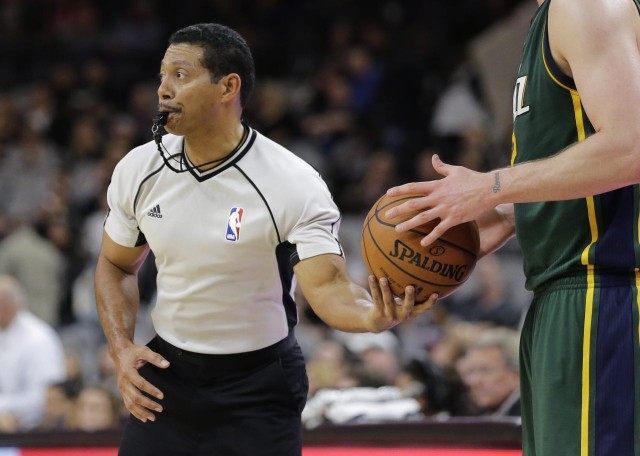NBA referee Bill Kennedy kicked Sacramento Kings point guard Rajon Rondo out of a game against the Boston Celtics earlier this month in Mexico City. In response, Rondo allegedly called him a word for a bundle of twigs that begins with “f,” ends in a “t,” and rhymes with maggot.
Then all hell broke loose. The NBA suspended Rondo for a game despite issuing fines against players guilty for using the insult in the past. On Sunday, Kennedy revealed his homosexuality, which surprised about as many people as Lance Bass did when he came out of the closet. If Rondo didn’t know Kennedy’s sexual orientation when he verbally degraded him, then he remained in a small minority within the professional basketball community. And although Kennedy’s closet door remained more than slightly ajar, Rondo’s tasteless words swung that door further open. At the same time, it’s hard to think of a basketball game in which the referees did not endure some form of abuse, whether done openly on the court or privately in the locker room.
The debate now strangely centers not on the question of whether mere words should make for a suspension but whether Rondo deserved stiffer justice.
On ESPN’s Around the Horn, panelists rushed to insist that the NBA’s unprecedented punishment for mere words went too soft on Rondo.
SB Nation’s Tom Ziller wrote an entire article in essence saying that Rondo needs to apologize for his lame apology. “Monday wasn’t enough,” Ziller writes of Rondo’s tweeted mea culpa. “Rondo needs to get out there ASAP and give a full-throated, no-qualifier apology to Kennedy, to Kennedy’s family and to the NBA community.” Why not demand apologies to the ghosts of Charles Nelson Reilly, Earl Strom, and James Naismith, too?
CBS Sports’ Ken Berger claims that some NBA executives believe Rondo’s nine lives in the league remain all but used up. He asked about the current NBA leader in assists, “at what point will Rondo’s conduct cause potential employers to take a pass?”
Rondo doesn’t get along with teammates, coaches, and apparently referees. But the problem man-child’s a former NBA champion, four-time All-Star, and league leader in assists and steals during two separate seasons. If calling a ref a nasty name rates a one-game suspension, then what’s the proper punishment for a pundit suggesting that league executives seriously consider exiling from the NBA one of the best pure point guards on planet Earth?
Kyle Lowry threw a ball at a female referee, called her a b—-, and threatened to beat her up after a 2012 charity game. The NBA made him an All-Star last season. Rondo’s teammate Caron Butler began selling drugs at 11 and by 15 his record displayed as many arrests as years lived. Oprah Winfrey later featured him on her television show as an example of redemption (which he apparently is). DeShawn Stevenson pleaded no contest to a misdemeanor statutory rape charge for sex with a 14-year-old during his rookie season in Utah. The swingman enjoyed stops in five other NBA cities before the league gave up on him.
If Lowry, Butler, and Stevenson could find teams eager to give them jerseys, then certainly a player far more talented than the trio—and guilty of ugly speech rather than damaging actions—need not file for unemployment anytime soon. Javaris Crittenton more likely suits up for an NBA again than Rajon Rondo gets banished from the league over this.

COMMENTS
Please let us know if you're having issues with commenting.